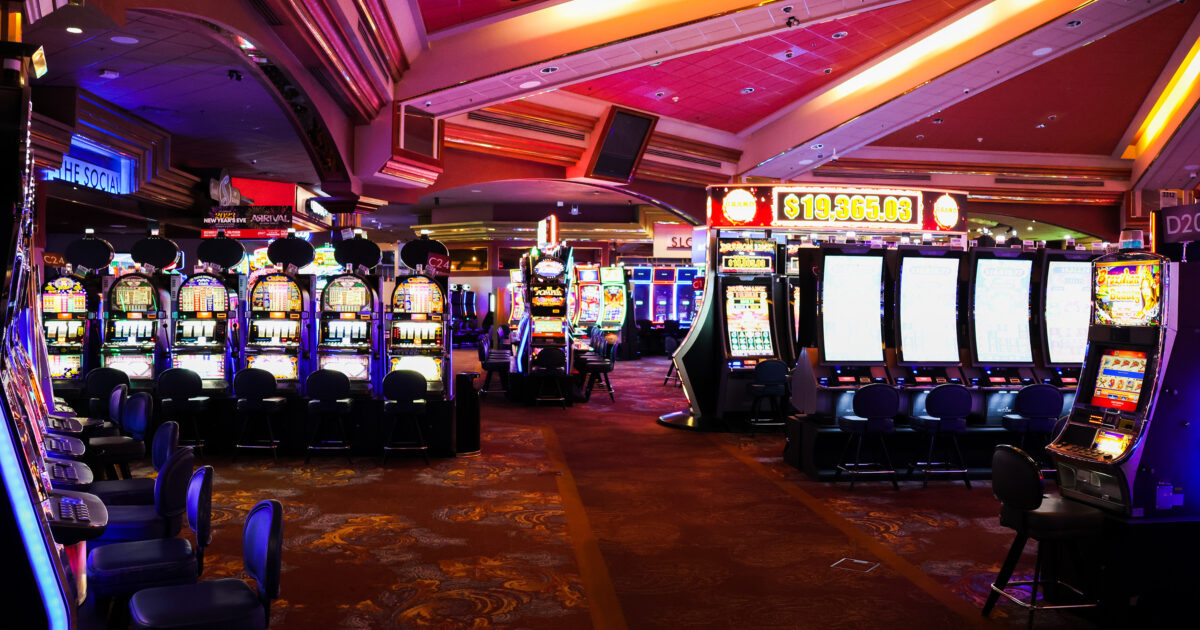In the lively world of gambling halls, where the atmosphere pulses with enthusiasm and the clattering of chips fills the environment, the position of a game dealer is both crucial and captivating. Daily, these skilled professionals step into a realm where luck and tactics converge, guiding players through the highs and lows of their selected casino games. From table games like 21 and texas hold ’em to the spinning wheels of the roulette table, dealers manage the gameplay while ensuring that each game operates seamlessly and fairly.
As the sun rises on another hectic day, a casino game dealer prepares to immerse themselves in this dynamic setting. Their duties extend beyond just distributing cards or turning a wheel; they are also entertainers, service providers, and guardians of the rules. Each shift brings new challenges and experiences, making every day distinct in the life of a casino dealer. This behind-the-scenes look will examine the daily routine of a casino dealer, highlighting the expertise and experiences that make this career both thrilling and rewarding.
The Role of a Gambling Table Croupier
A gambling game croupier is at the heart of the gambling experience, managing the progress of the play while making sure that players are involved and enjoying themselves. Their main duty is to manage the table, which involves distributing cards, spinning the wheel, or managing the chips, depending on the type of game being played. Croupiers must have a thorough understanding of the rules and regulations governing each game, while also maintaining a welcoming and approachable demeanor to enhance the gambling atmosphere.
In addition to managing the gameplay, dealers must also keep a close watch on the players and the environment around the game. This entails monitoring for any indications of cheating, ensuring that everyone is adhering to the rules, and resolving any disputes that may arise among players. Strong communication skills are vital, as croupiers often give explanations about the rules and mechanics and give assistance to those who may be new to casino games.
Furthermore, a croupier’s role extends beyond just the technical aspects of the play. They play a key part in crafting an immersive experience for the players. This necessitates establishing a connection with patrons, being attentive to their wants, and often injecting an element of fun into the game. It’s this combination of skill, alertness, and interpersonal relationship that makes the position of a casino game croupier both demanding and rewarding in the vibrant world of gambling games.
Responsibilities and Challenges in Daily Operations
One of the primary responsibilities of a dealer in a casino is to manage the various games available at their table, ensuring a seamless and enjoyable experience for players. Dealers must be proficient at distributing cards, handling chips, and maintaining the continuity of the game. This calls for a sharp understanding of the regulations of each game, from blackjack to roulette, and the ability to answer players’ questions while maintaining the game progressing. Attention to detail is essential, as dealers must monitor bets, disburse winnings correctly, and watch for any cheating or discrepancies at the table.
In addition to supervising the game itself, dealers encounter challenges such as dealing with difficult players. The casino environment can be tense, particularly during intense games, and a dealer must remain calm and maintain professionalism at all times. They need strong interpersonal skills to handle interactions with players who may be upset about losses or dissatisfied with the game’s pace. Handling these situations delicately is crucial in creating a positive atmosphere on the casino floor.

Another significant responsibility is upholding the honesty of the game. Dealers must be alert and observant, watching for any signs of player cooperation or cheating among players. This involves not only a strong knowledge of the games but also an awareness of player psychology. They must also adhere to the casino’s rules and procedures, participating in regular training sessions to stay informed on rules and protocols. Balancing these responsibilities while providing top-notch customer service is what makes the role both difficult and fulfilling for a dealer in a casino.
Qualities and Traits for Success
A effective casino game dealer must demonstrate superior communication skills. This includes not only the ability to effectively explain game rules and procedures to players but also the capacity to interact with them in a approachable and professional manner. Building rapport with customers can enhance the gaming experience and encourage repeat visits to the casino. Strong communication enables dealers to manage tables efficiently while ensuring that players feel valued.
Additionally, solid mathematical skills are essential for a dealer. Quick calculations are often required to follow bets, payouts, and game outcomes in the moment. A dealer’s ability to perform these math operations accurately and swiftly promotes to the overall efficiency of the game. This skill helps in maintaining the flow of play and in minimizing disputes or misunderstandings with players, which is crucial in a dynamic casino environment.
Lastly, an ideal casino game dealer should demonstrate integrity and professionalism at all times. OKE179 Trust is a crucial component of the gaming experience, and players must feel assured that the games are conducted equitably and clearly. A dealer’s dedication to upholding high ethical standards fosters a positive atmosphere at the table and enhances the casino’s standing. Being consistent in behavior ensures that dealers leave a lasting impression on guests, which can lead to a faithful customer base.